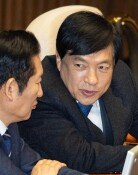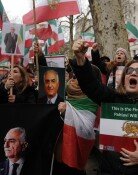[Editorial] Oil Gate: At Issue Are Those Surrounding Vice Minister Kim
[Editorial] Oil Gate: At Issue Are Those Surrounding Vice Minister Kim
Posted May. 12, 2005 23:37,
Kim Se-ho, the former vice minister of construction and transportation, was arrested for misappropriating funds as he was practically in charge of pushing for the Korean Railroads (Korail) oil-field development project in Russia. The prosecution said Vice Minister Kim ordered a Korail director, Wang Young-yong, to report the project to Cheong Wa Dae in August while he was in office, and Kim also asked Commerce, Industry and Energy Minister Lee Hee-beom to give the project favorable treatment. Kim is also alleged to have asked Woori Bank managers to give Korail a quick loan for the contracts down payment.
Kim has consistently denied his involvement, saying, It was the project directors who rushed to kick off the project. However the prosecution believes that it was Kims orders that led to changes in the provisions of the Korea Rail Traffic Development Foundation to carry out the project and various other cases of bypassing laws and procedural drawbacks.
There must have been some reasons why vice minister Kim, who used to be known as a flawless public official, recklessly got involved in the oil-field development project. First of all, some internal documents of Korail have been disclosed that show how Cheong Wa Dae, the National Security Council, the Ministry of Construction and Transportation, the Ministry of Unification, and the Ministry of Commerce, Industry and Energy were involved in the project. One can tell how inter-governmental agencies were involved in it.
At issue is political influence, too. It was found out that Jeon Dae-wol, president of Korea Crude Oil (KCO), a joint venture for oil-field development, gave 80 million won to aides of Rep. Lee Gwang-jae of the ruling Uri Party. Lee introduced Jeon to Heo Mun-seok, an oil development expert, who had fled overseas as the investigation was under way. Lee said he came to know Mr. Huh through Lee Ki-myung, head of his support group. Rep. Lee and Lee are two of President Roh Moo-hyuns closest fellows.
I believe that the Board of Audit and Inspection ended up with a blindfolded investigation for political reasons. The board never requested for an investigation into Rep. Lee, merely pointing out some administrative flaws in the oil-field development project. There must have been some reason why even the secretary general came to the fore to explain the situation in favor of Rep. Lee. It is imperative for the prosecution to be involved in this case. It is the duty of the prosecution to abide by the law no matter whom it investigates. Even if so, no one would dare say the prosecution has exercised excessive authority.



![“잠만 자면 입이 바싹바싹”…잠들기 전에 이것 체크해야 [알쓸톡]](https://dimg.donga.com/c/138/175/90/1/wps/NEWS/IMAGE/2026/02/23/133404749.3.jpg)



